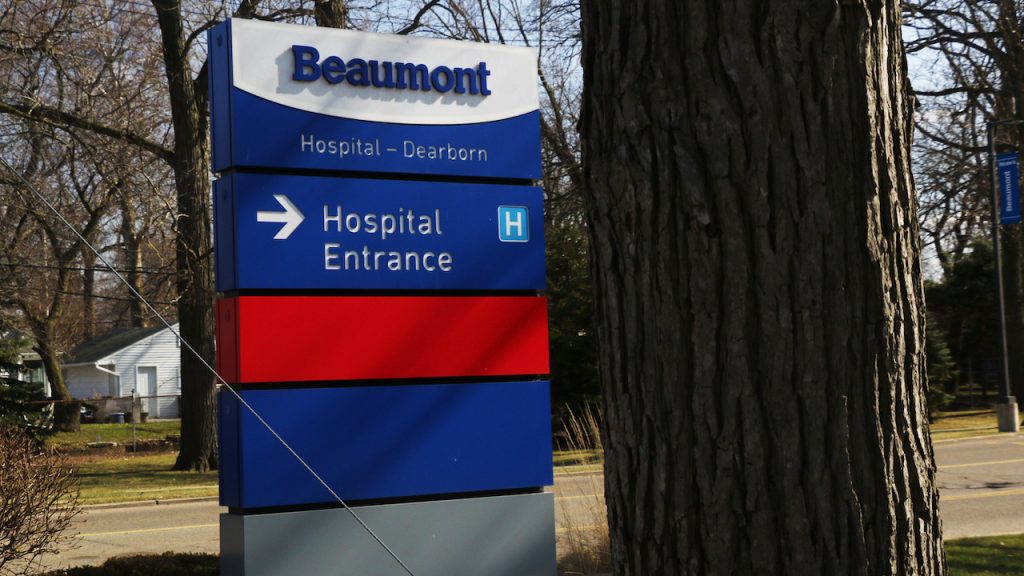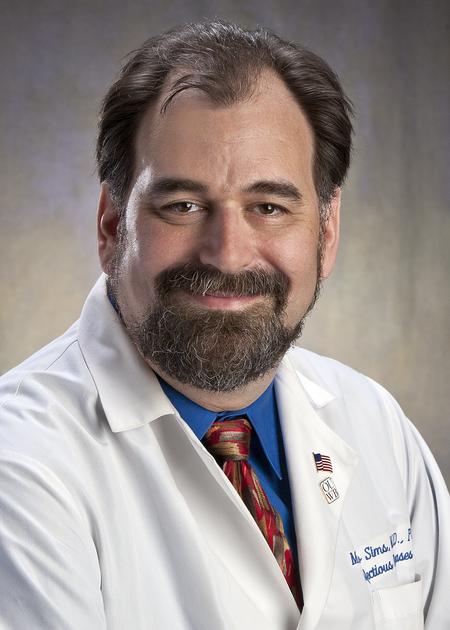Beaumont Studies Drug Combination As Possible COVID-19 Treatment
Researchers want to know if Ketamine plus Naltrexone could relieve COVID-19 inflammation.

Beaumont researchers have spent weeks looking for effective ways to treat COVID-19.
In April, they started a large study to see whether COVID-19 antibodies protect people from being infected again. To date, Beaumont has drawn about 20,000 serum samples from staff, patients, and others affiliated with the health system.
“What we’re really looking to do is prevent people from getting to that phase where their lives are at risk.” — Dr. Matthew Sims, Beaumont Health
Dr. Matthew Sims is Beaumont’s director of infectious disease research. He says if antibodies do provide immunity, then plasma containing those organisms could be used to treat other patients.
Sims and his team are now looking at whether two common drugs — Ketamine and Naltrexone — could help. Ketamine is an anesthetic used to manage pain. Physicians use Naltrexone to treat opioid addiction. In lower doses, Sims says the drugs could reduce the painful swelling that happens when the body fights a COVID-19 infection.
Click on the player above to hear Dr. Matthew Sims on Beaumont new COVID-19 treatment trial.

“As the disease progresses, you get into what’s called the hyper-inflammatory phase,” Sims says. “That progression is less about the disease itself and more about how your body is trying to deal with it.”
Sims says the study aims to determine if the combination modulates the immune system without suppressing it.
Who’s in the Study?
Dr. Sims says the trial will have two different arms. The first will be a randomized, controlled trial in which patients receiving 6 liters of oxygen or less will be given Naltrexone or a placebo. If those patients progress to the point where they need more oxygen, they’ll be given Ketamine as a rescue drug.
The second arm of the trial places people who already require a lot of oxygen into an unblinded study in which they get both drugs, but not a placebo.
“It was designed this way to give us the most flexibility in terms of being able to prove what we want to prove, and help patients who are really sick,” Sims says.
It’s Not a Cure
Dr. Sims says researchers are not going to find a magic pill that gets rid of the coronavirus quickly. Rather, the goal is to help patients survive.
“What we’re really looking to do is prevent people from getting to that phase where their lives are at risk,” Sims says. “And if their lives are at risk, we want to give them additional medication to pull them back to where they’re safe.”
Related: Beaumont Studies COVID-19 Antibodies as Possible Treatment
Sims cautions that good research takes time, and there are policies and procedures in place to ensure the research is sound and done properly. He says standardized research protocols are necessary to determine if a treatment is effective, ineffective or dangerous.
But he also says doctors do feel pressure to help patients during a pandemic.
“When patients are admitted and we don’t know how to treat them — some are getting worse, some are dying — doctors are trying all sorts of things,” Sims says. “Not every hospital has the capability of starting a research trial from scratch.”
Trusted, accurate, up-to-date
WDET is here to keep you informed on essential information, news and resources related to COVID-19.
This is a stressful, insecure time for many. So it’s more important than ever for you, our listeners and readers, who are able to donate to keep supporting WDET’s mission. Please make a gift today.
